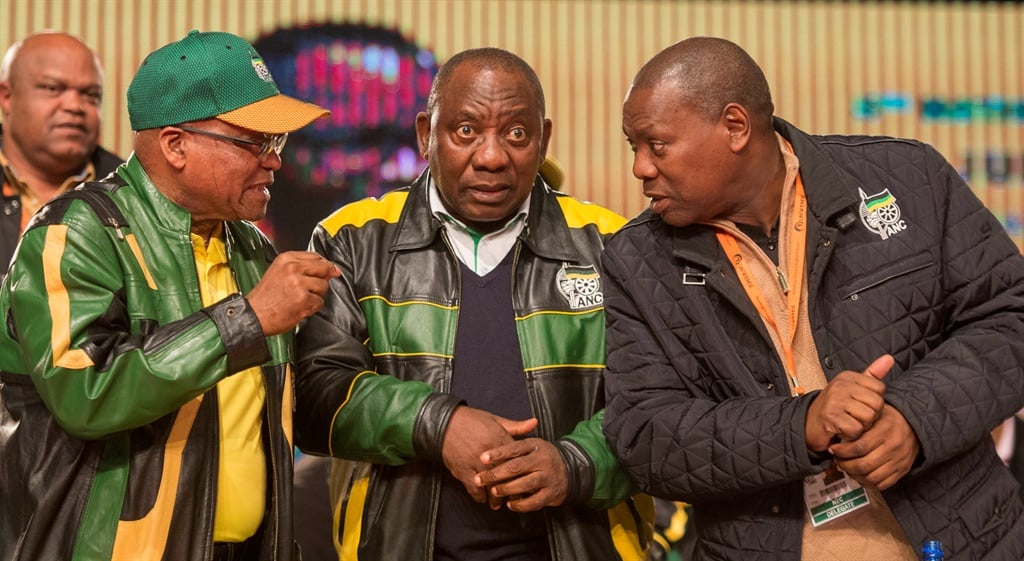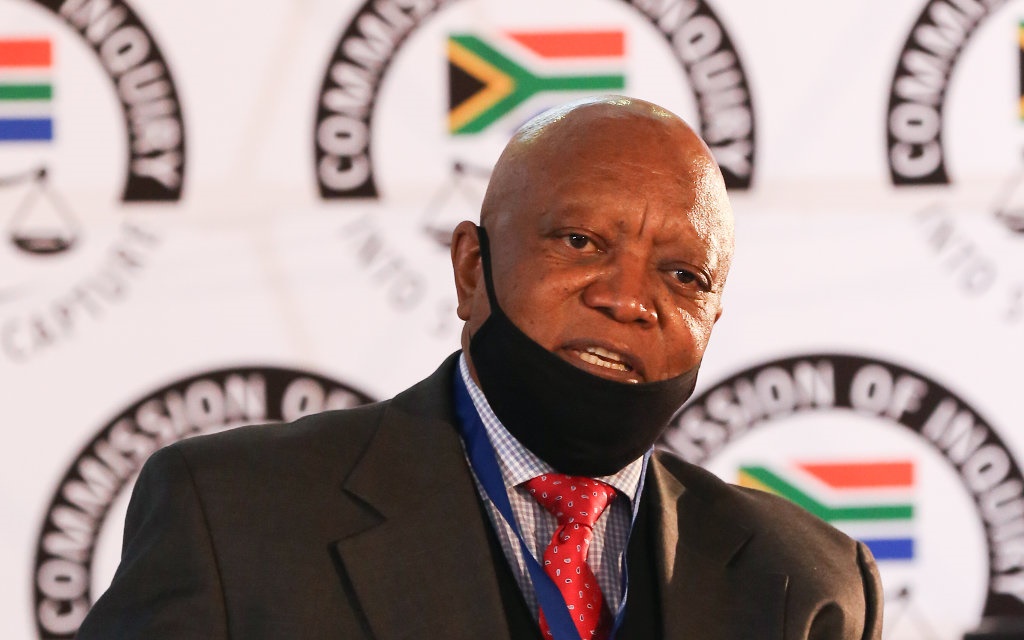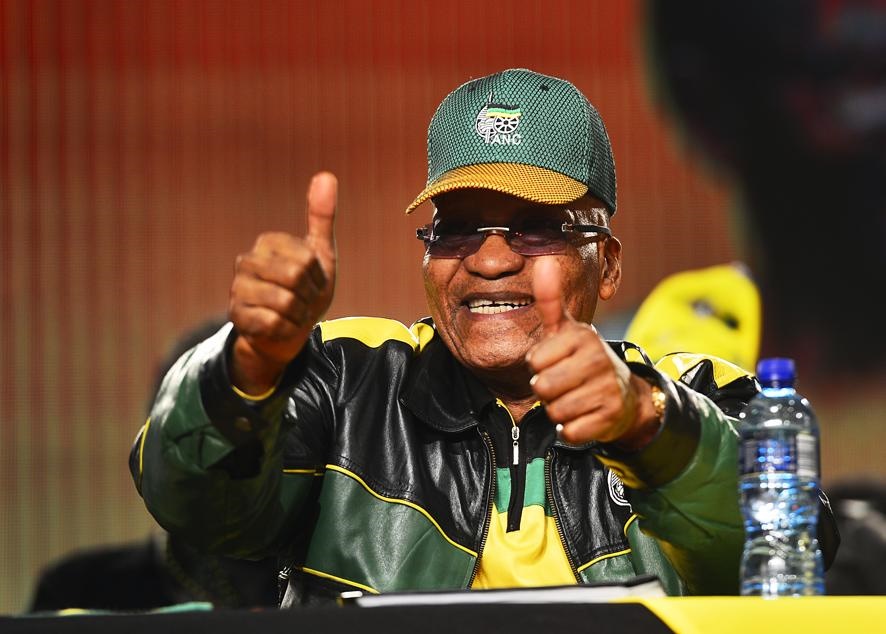South Africa isn’t winning the battle against corruption, prosecutions boss Shamila Batohi told Parliament on Tuesday. And on the same day Popo Molefe and Deputy Chief Justice Raymond Zondo explained why. The reason is the ANC, writes Pieter du Toit.
On Tuesday, the day after the resumption of the judicial commission of inquiry into allegations of state capture, National Director of Public Prosecutions Shamila Batohi told Parliament that South Africa is not winning the fight against corruption.
She couched it by adding the country isn’t winning “yet”, but explained the National Prosecuting Authority (NPA) and the police’s Directorate for Priority Crime Investigations do not have enough prosecutors and investigators to roll back grand corruption and state capture.
“We are citizens of this country, like you. We want to see these cases come to court and we want to see people being held accountable. We are outraged by what has been going on,” she said.
But, if institutions like the Hawks aren’t strengthened, “we’re not going to win this battle”.
At around the same time that Batohi was busy having a frank discussion, the former chairperson of the board at the Passenger Rail Agency of South Africa, Popo Molefe, was detailing the complicity of the governing ANC and its office bearers in ripping off billions of rand of taxpayers’ money from the parastatal.



Former President Jacob Zuma, President Cyril Ramaphosa and Helath Minister Zweli Mkhize during the African National Congress (ANC) 5th national policy conference at the Nasrec Expo Centre in 2017.
And when he was finished, the chairperson of the inquiry, Deputy Chief Justice Raymond Zondo, delivered one of the most scathing indictments of the ANC in recent memory, decrying the lack of resolve and honesty from the party and its leadership. Maybe it’s time, he said, that a leader without the ambition of re-election “stands up and puts the country and its people first”.
Molefe’s testimony over two days has again revealed a governing party, where corruption and cover-ups are endemic and institutionalised. The ANC has shown a singular and steadfast refusal to act against state capture and corruption within. The party, in government for 26 years, will forever remain intoxicated and beholden to the pursuit of power, and the retention of power, above anything else.
Billions of rands were looted from Prasa, with billions more targeted. Molefe, who chaired the board, tried to stem the bleeding, but according to his testimony, he was thwarted at every turn. Not only was he instructed by ministers to suspend investigations into the allegations of widespread and large-scale malfeasance, every effort to enlist support from his party’s leadership also failed.
Out of desperation – because every other avenue prescribed by corporate codes of good governance proved to be dead-ends – he briefed his political party’s leadership. But the leadership of then-president Jacob Zuma, his deputy Cyril Ramaphosa, Gwede Mantashe, Jessie Duarte, Baleka Mbete and Zweli Mkhize didn’t help him.
Neither did Mbete, who moonlighted as speaker of Parliament, when Molefe wrote to her asking for the legislature to investigate events at Prasa. But Parliament under her, of course, had already shown its colours some years before when it abdicated its constitutional duty to provide oversight of Zuma’s Nkandla “prestige building project”. It had to be forced by the Constitutional Court to do its duty. She may well be the worst speaker since 1994.
Molefe is part of the ANC’s old guard. Political analyst Theo Venter, who knows North West Province politics inside out, says Molefe was probably the best of the premiers the province has had. He “launched” the province alongside present premier, Job Mokgoro, then his director-general, in 1994. And he left it in “pretty good nick” when he departed after serving two terms.
He fell out with former president Thabo Mbeki, and sided with the “coalition of the wounded” in 2007, but quickly abandoned the Zuma project. His political roots lie in black consciousness, and he is known to be close to Ramaphosa and Ngoako Ramatlodhi, one of a raft of former ministers dismissed by Zuma when the state capture project was reaching its zenith.



Popo Molefe , the former chairperson of the Board of PRASA, testifies at the Judicial Commission of Inquiry into State Capture on June 29.
On Tuesday, Molefe, who has been an ANC member throughout his adult life, said that rolling back the tide of corruption will not be successful until the party understands that it is in government to give effect to the Constitution and to serve the poor. That, he told Zondo, “is not happening”.
Leaders need to act ethically and, importantly, with courage, to ensure accountability and secure justice. Leaders, he said, need “to act and act now…don’t sing songs about your commitment to fighting corruption, demonstrate it through your actions”, he said, addressing Zondo, but actually berating the party of Ramaphosa.
Zondo’s closure was perhaps one of the most powerful monologues he has delivered in almost two years.
He has listened to thousands of hours of testimony, ranging from the first-hand accounts from Pravin Gordhan and Mcebisi Jonas, Barbara Hogan’s explanations of the corruption of the ANC’s deployment committee to the elaborate statement of victimhood and conspiracies by Zuma.
And, on Tuesday, he started putting the jigsaw together.
Party leaders don’t break ranks, because they need to secure support for whatever chairpersonship or appointment they want. So, when they see criminality or wrongdoing, in order to preserve their political future, they turn a blind eye.
The same with ministers, who remain quiet when they see they see illegal activities, because “if they say anything, they limit their career opportunities, or they might get fired…they mind their own business”.



Former ANC president Jacob Zuma.
“And if a president doesn’t act against a minister, it is because he or she needs the support of that minister when they need to be elected again; they fear that if that minister is fired, he will mobilise against the president,” Zondo explained.
And so the carnival of impunity, rent-seeking and factionalism continues. Everyone knows what is going on, but nobody does anything.
Corruption won’t be stunted, Zondo said, as long as this continues.
“Maybe we need a president who will stand up in Parliament and say ‘start with me’… who will say, if members of the governing party do not ask me hard questions to hold me accountable, they are not doing their job.
“It might be drastic, but maybe we need someone who does not care about re-election… who understands that country and people come first,” the deputy chief justice said.
Both men were searing in their analysis, and hopeful in offering solutions.
But South Africa’s reality was the one Batohi elaborated on in Parliament. The battle against corruption is not being won.
And the ANC knows exactly why.

